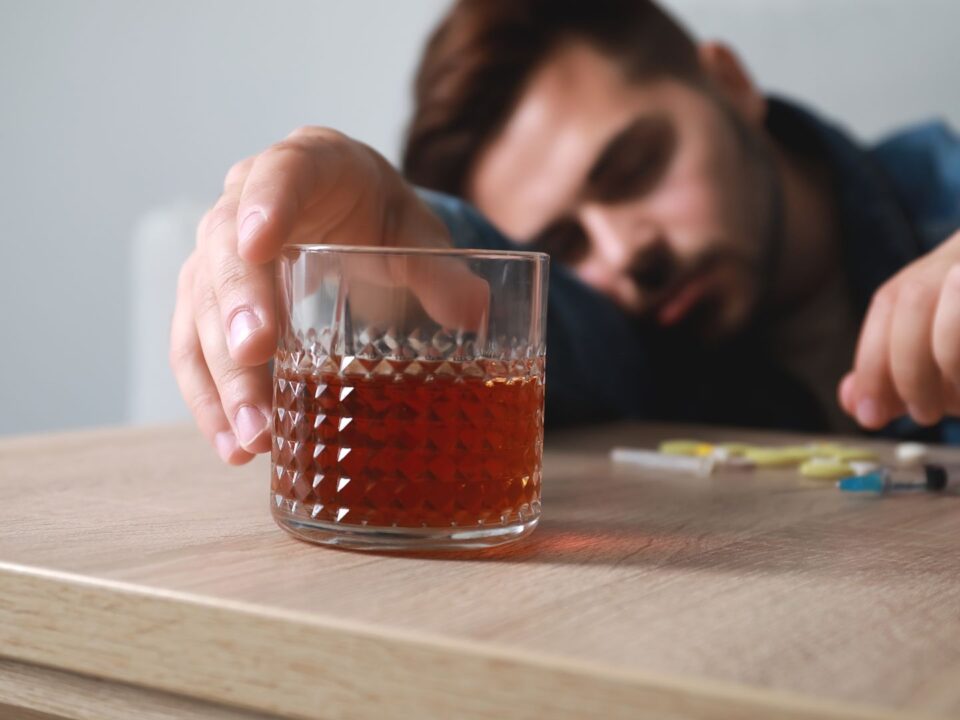
Does a Partial Hospitalization Program in Indianapolis Treat Eating Disorders?
February 21, 2025
What Types of Mental Health Conditions Are Treated in Inpatient Mental Health Facilities in Indianapolis?
February 25, 2025Struggling with substance use disorders can be an overwhelming experience. Individuals may feel trapped in a cycle of addiction, unable to break free on their own. In Indianapolis, inpatient mental health facilities in Indiana offer a comprehensive approach to treating these disorders.
One key aspect is providing a safe and supportive environment for recovery.
This article will explore how inpatient mental health facilities in Indiana address substance use disorders. You’ll learn about the various therapies and treatment methods employed, the role of detoxification, and the importance of aftercare planning.
We’ll also discuss how these facilities handle dual-diagnosis cases and prevent relapse. Keep reading to gain valuable insights into the inpatient treatment process for substance use disorders in Indianapolis.
Key Takeaways
- Inpatient mental health programs in Indianapolis provide a structured environment and comprehensive treatment for substance use disorders, including detoxification services, group therapy, individual counseling, and family therapy.
- These programs employ various evidence-based therapies such as Cognitive Behavioral Therapy (CBT), Dialectical Behavior Therapy (DBT), Medication-Assisted Treatment (MAT), and holistic therapies like art therapy and meditation.
- Family involvement is encouraged through family therapy sessions, education, and counseling to create a supportive recovery environment and reduce relapse rates.
How Are Substance Use Disorders Treated in Inpatient Mental Health Programs in Indianapolis?
Inpatient mental health in Indianapolis provides a structured environment that aids recovery from substance use disorders. Treatment plans are personalized and tailored to each patient’s needs.
The length of stay typically ranges from 30 to 90 days. Detoxification services are provided to help patients safely withdraw from substances. Group therapy plays a vital role, allowing individuals to share experiences and learn coping strategies.
Family therapy is included to address relationship issues and build a supportive network. Relapse prevention strategies equip patients with tools to maintain sobriety after discharge.
What Types of Therapies Are Used to Treat Substance Use Disorders in Inpatient Programs in Indianapolis?
Indianapolis Inpatient mental health programs employ a comprehensive approach to treat substance use disorders. They utilize various evidence-based therapies tailored to individual needs.
- Behavioral therapies like Cognitive Behavioral Therapy (CBT) and Dialectical Behavior Therapy (DBT) help modify harmful thought patterns and behaviors.
- Medication-assisted treatment (MAT) combines medications with counseling to manage cravings and withdrawal symptoms.
- Group therapy sessions foster peer support, accountability, and shared learning experiences.
- Individual counseling addresses personal issues contributing to substance abuse.
- Holistic therapies such as art therapy, yoga, and meditation promote well-being.
- Family therapy involves loved ones in the recovery process, and strengthening support systems.
- Peer support groups provide a sense of community and shared experiences.
- Vocational therapies equip individuals with skills for successful reintegration.
- Expressive arts therapy encourages self-expression and emotional processing through creative outlets.
- Trauma-focused therapies like EMDR (Eye Movement Desensitization and Reprocessing) address underlying trauma.
Can Inpatient Mental Health Programs in Indianapolis Help Individuals with Dual Diagnosis?
Inpatient mental health programs in Indianapolis provide comprehensive treatment for individuals with dual diagnoses. These programs address co-occurring substance use and mental health disorders simultaneously.
Therapists use evidence-based practices like cognitive behavioral therapy and motivational interviewing. Medication management and group therapy sessions are integral components. Family education and counseling promote a supportive recovery environment.
Integrated treatment helps people recover by addressing mental and substance use conditions at the same time. – SAMHSA
Inpatient programs significantly reduce relapse rates compared to outpatient care alone. Patients live on-site with 24/7 monitoring and support. Treatment lengths vary based on individual needs but typically last 30-90 days.
Aftercare planning connects patients with step-down services for continued progress with the best inpatient mental health facilities in Indiana.
How Long Does Treatment for Substance Use Disorders Last in Inpatient Mental Health Programs in Indianapolis?
The length of stay in adolescent inpatient mental health facilities in Indiana programs for substance use disorders in Indianapolis typically ranges from 30 to 90 days. The program begins at a residential level of care after the individual has been stabilized, which usually takes 5 to 10 days.
A multidisciplinary treatment team consisting of psychiatrists, psychologists, social workers, and addiction specialists provides comprehensive care during the inpatient stay. The structured environment aids in the recovery process by removing access to substances and providing a safe, supportive setting.
After completing the inpatient program, individuals often transition to outpatient therapy and support groups like Alcoholics Anonymous (AA) or Narcotics Anonymous (NA) as part of their aftercare plan.
This step-down approach helps maintain the gains made during inpatient treatment and reduces the risk of relapse. The inpatient mental health facilities in Indianapolis offer evidence-based therapies and services to address substance use disorders and any co-occurring mental health conditions.
Are Detoxification Services Provided in Inpatient Mental Health Programs in Indianapolis?
Inpatient mental health facilities in Indianapolis provide medical detoxification services. Individuals receive support for managing withdrawal symptoms from substances. Medication-Assisted Treatment (MAT) helps reduce cravings and withdrawal effects.
Daily medical care and routine bloodwork monitor patients’ health. The admission process includes a medical history and physical examination.
Facilities offer on-site living with daily clinical programming for substance use disorders. Safety planning and short-term disability support aid in recovery. This leads to the next section on the role of group therapy in treating substance use disorders in inpatient programs in Indianapolis.
What Role Does Group Therapy Play in Treating Substance Use Disorders in Inpatient Programs in Indianapolis?
Group therapy plays a crucial role in treating substance use disorders in inpatient mental health treatment in Indianapolis. Peer support groups form an integral part of the recovery process.
Emotions Anonymous and group therapy sessions provide mutual support and shared experiences. Research indicates group therapy helps reduce relapse rates.
Family therapy is integrated to involve loved ones in the recovery journey. Group therapy sessions offer a safe space for individuals to connect, share their stories, and gain insights from others’ experiences.
Therapists facilitate these groups, fostering an environment of understanding and encouragement. The sense of community and accountability cultivated through group therapy empowers individuals to maintain sobriety.
Are Family Therapy Included in Inpatient Mental Health Programs for Substance Use Disorders in Indianapolis?
Family therapy plays a crucial role in inpatient mental health facilities programs for substance use disorders in Indianapolis. Family involvement is actively encouraged to support recovery. Family therapy sessions address family dynamics and improve communication between members.
An integrated approach includes the family in the recovery process.
The family program is part of the admissions process at inpatient mental health facilities in Indianapolis. Family support helps reduce relapse rates for individuals recovering from substance use disorders.
Family therapy equips loved ones with strategies to create a supportive environment during and after treatment.
How Do Inpatient Mental Health Programs in Indianapolis Help Prevent Relapse for Substance Use Disorders?
Moreover, inpatient mental health facilities in Indianapolis prioritize relapse prevention strategies. These programs provide a structured environment conducive to recovery. Patients learn coping mechanisms, triggers, and relapse prevention techniques.
Aftercare planning involves outpatient programs, support groups like Alcoholics Anonymous (AA) or Narcotics Anonymous (NA), and ongoing therapy. Research shows inpatient treatment significantly reduces relapse rates compared to outpatient care alone.
Long-term recovery services include outpatient therapy and community involvement. Inpatient facilities advocate reducing stigma and promoting resources. Patients develop a relapse prevention plan before discharge.
This plan identifies high-risk situations, coping strategies, and support systems. Inpatient programs equip individuals with tools for sustained sobriety. The goal is to empower patients for successful reintegration into society while maintaining recovery.
Conclusion
Substance use disorders require comprehensive treatment. The best inpatient mental health facilities in Indiana program integrate therapies like individual counseling, group sessions, and family involvement.
Medication-assisted treatment reduces cravings and withdrawal symptoms. Aftercare planning prevents relapse through outpatient programs and support groups. Overcoming addiction improves the quality of life and restores control.
Seek professional help to begin your recovery journey.
FAQs
What types of treatment do inpatient mental health facilities in Indiana offer for substance use disorders?
Indianapolis inpatient mental health centers provide many treatments. These include therapy, medicine, and group support. The best inpatient mental health facilities in Indiana use a mix of methods to help patients recover.
How long do people usually stay in inpatient mental health programs for substance use in Indianapolis?
Stay times vary at mental health facilities in Indianapolis. Some people need a few weeks, others a few months. It depends on each person’s needs. Inpatient mental health treatment lasts until the patient is ready to leave safely.
Are there special inpatient programs for teens with substance use disorders in Indiana?
Yes, there are adolescent inpatient mental health facilities in Indiana. These programs focus on young people’s unique needs. They offer care that fits teens’ mental and physical growth stages.
How do I find the best inpatient mental health facility in Indiana for substance use treatment?
To find top care, research different inpatient mental health facilities in Indiana. Look at their success rates and treatment types. Ask doctors for advice. Visit centers if possible. Choose a place that fits your specific needs and comfort level.






